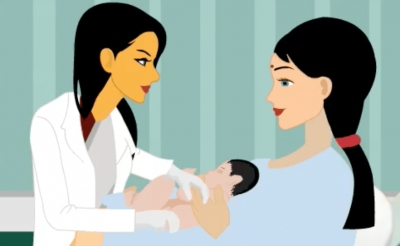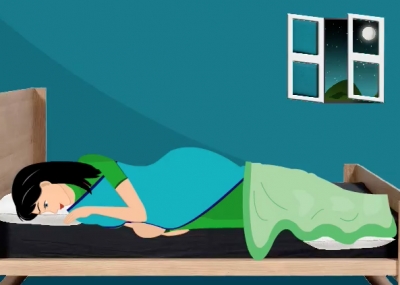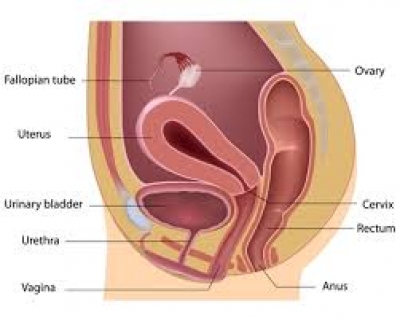As the follicle matures it produces estrogen and at around the 14th day of the menstrual cycle the estrogen hormones have reached a peak and at this time another hormone called leutenising hormone is produced by the pituitary gland. This hormone triggers the release of an egg from the follicle in the ovary.
The ruptured follicle (corpus luteum) now secretes progesterone and estrogen to prepare the uterus for pregnancy. They do this by thickening the inner wall of the uterus. If the egg is not fertilized, estrogen and progesterone levels drop and, on Day 28, the menses begin.
When the cycle does not happen in the above sequence and if there is too much or too little of hormones, it can cause disturbances in the menstrual cycle and in ovulation causing infertility.
What are the various hormones produced during menstruation?
Follicle Stimulating Hormone (FSH) - released from the pituitary gland in the brain, and stimulates the ovarian follicles to mature.
Luteinizing Hormone (LH) - also released from the pituitary gland in the brain at ovulation, and causes the rupture of the mature ovarian follicle, releasing the egg.
Estrogen - One of the female sex hormones. Estrogen is responsible for growing and maturing of the uterine inner lining and it also helps in the maturation of the egg prior to ovulation. Estrogen is produced mostly by the ovaries but also in smaller amounts by the adrenal glands and in fat tissue. It begins to be produced from the first day of menstrual cycle and is in most abundant in the first half of the menstrual cycle (follicular phase).
Progesterone - Another of the female sex hormones. It works in the body to balance the effects of estrogen and is often referred to as the relaxing hormone. Progesterone is produced after ovulation by the corpus luteum (sack that the egg comes from) and dominates the second half of the cycle (luteal phase). Progesterone helps in the build-up of the uterine lining and also helps in maintaining the uterine lining if there is a pregnancy. If there is no pregnancy, the progesterone levels fall and the lining of the uterus is shed, beginning the menstrual cycle.
Testosterone - An important sex hormone for both women and men. Women have much lower levels. It is produced by the ovaries and adrenal glands and it increases at the time of ovulation and before periods. Testosterone helps women maintain muscle mass and bone strength and in overall well being.






